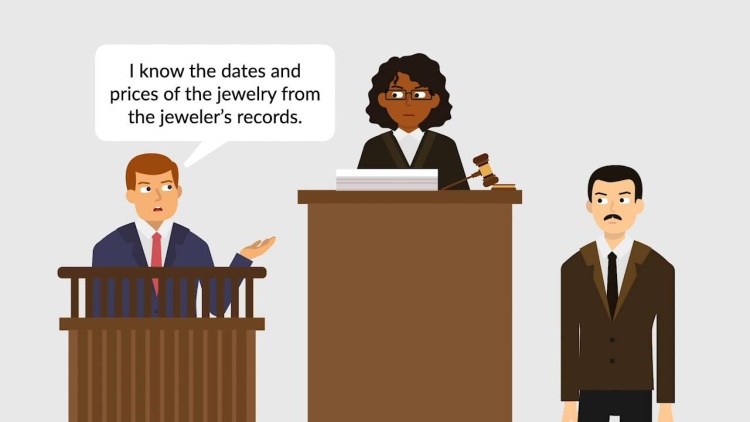Dadurian v. Underwriters at Lloyd’s of London
United States Court of Appeals for the First Circuit
787 F.2d 756 (1986)
- Written by Joseph Bowman, JD
Facts
Dadurian (plaintiff) allegedly purchased several pieces of jewelry from Howe, a jeweler. Neither Dadurian nor Howe maintained records corroborating the purchases, and both claimed that Dadurian had purchased the jewelry with cash. Dadurian insured the jewelry with Lloyd’s of London (Lloyd’s) (defendant). The insurance policy was issued based on appraisals performed by Howe. Dadurian filed a claim. When Lloyd initiated its investigation into the matter, Dadurian claimed that he had obtained the cash necessary to purchase the jewelry from bank loans. Dadurian then had several months in which to collect the necessary documentation. Under oath, he presented loan documentation to Lloyd’s and claimed with certainty that these loans were related to the jewelry purchases. At trial, an officer of the bank testified that the loans were not related to the jewelry purchases. Dadurian claimed to have been innocently mistaken as to the loans’ true purpose. The insurance policy excluded coverage if the insured knowingly provided false information concerning a material fact. The jury found in favor of Dadurian, and Lloyd’s moved for judgment notwithstanding the verdict or, alternatively, for a new trial. The lower court denied Lloyd’s motion, and Lloyd’s appealed.
Rule of Law
Issue
Holding and Reasoning (Campbell, J.)
What to do next…
Here's why 907,000 law students have relied on our case briefs:
- Written by law professors and practitioners, not other law students. 47,100 briefs, keyed to 996 casebooks. Top-notch customer support.
- The right amount of information, includes the facts, issues, rule of law, holding and reasoning, and any concurrences and dissents.
- Access in your classes, works on your mobile and tablet. Massive library of related video lessons and high quality multiple-choice questions.
- Easy to use, uniform format for every case brief. Written in plain English, not in legalese. Our briefs summarize and simplify; they don’t just repeat the court’s language.





